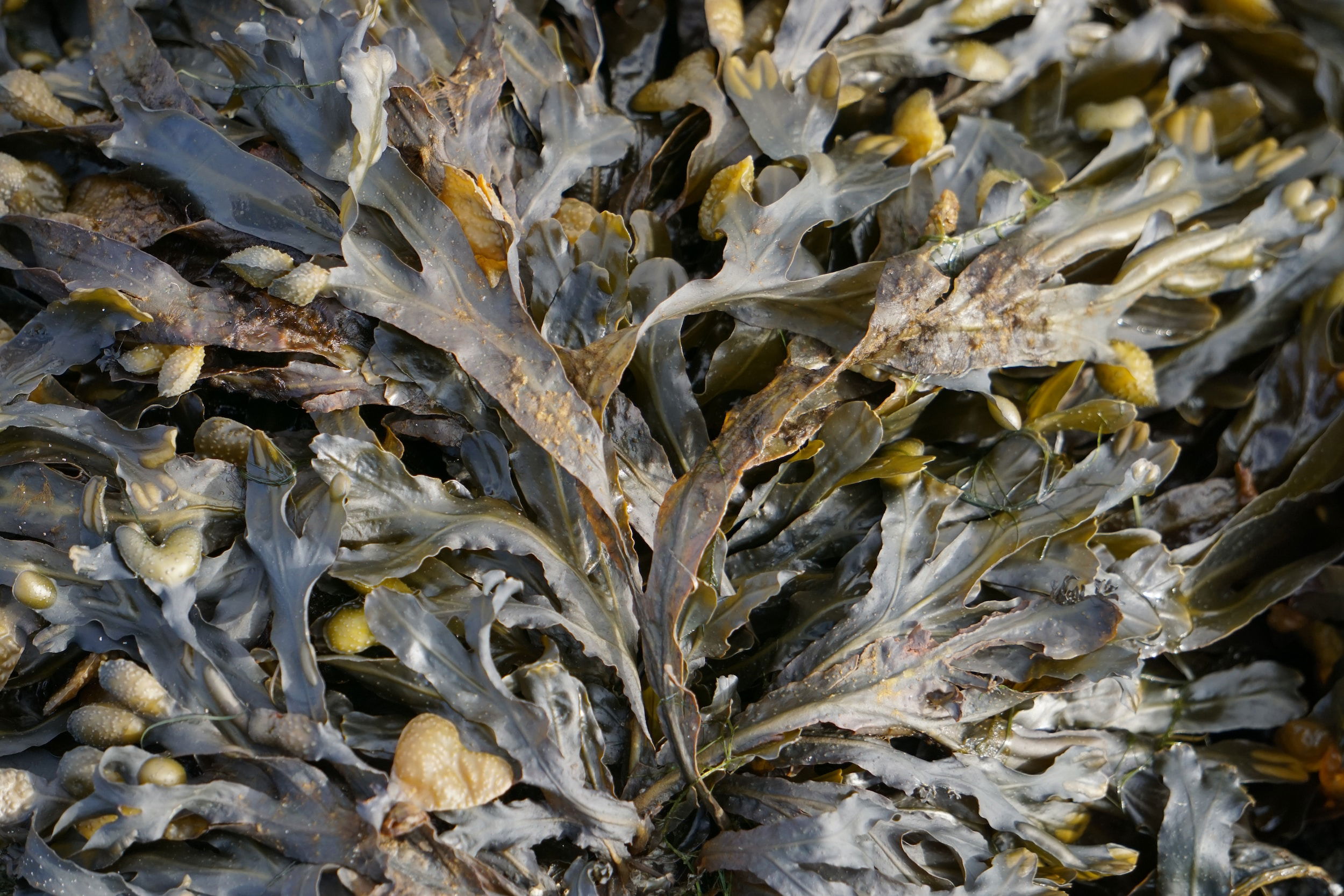OUR BLUE PLANET - Benefits of Seaweed
The skin health benefits of seaweeds have been known since time immemorial.
Oceans are so rich in life and diversity from the salt water and the sun, that it is no surprise that seaweed has some powerful skin caring properties. This includes nutrition to skin in the form of proteins, bioactive peptides, enzymes, minerals, polysaccharides, fatty acids, and vitamins. This special combination of nutrients makes seaweed help skin from its antioxidant, antimicrobial, anti-inflammatory and general anti-aging ability. It is one of the best bio-actives available for skin, and this is why we use it so much in our anti-ageing skincare products.

The Top 10 Benefits of Seaweed in Skincare Products
1. Cleansing and detoxing
2. Improving skin tone and pigmentation
3. Increasing hydration and trans-epidermal water loss
4. Helping to balance oil production
5. Delivering antioxidants to fight free radical damage
6. Supporting collagen production
7. Helping to smooth out wrinkles
8. Anti-inflammatory and calming
9. Providing intense vitamin, mineral and nutrient delivery
10. 100% natural and safe to use
Seaweed is a famous hydrating ingredient in skincare products. As a powerful humectant, seaweed draws moisture to skin cells, with potent polysaccharides absorbing water and bringing it to the skin. This provides long-lasting, hydration for moisturized-looking skin.
Why is seaweed good for wounds?
Alginate dressings are light, nonwoven fabrics derived from algae or seaweed. Designed for moderate to deeper wounds, they are highly absorbent, have mild hemostatic properties, reduce bacterial infections, and can stay on the wound bed for days
Is seaweed serum good for skin?
Seaweed comes in many varieties and is one of the best natural actives for providing the skin with anti-ageing support, skin nourishment and intense hydration plus antioxidant defence against free radicals.
What type of seaweed is best for skin?
Seaweed contains all the essential vitamins, minerals, amino acids, fatty acids from our oceans that our skin needs to create a healthy, balanced flora. Rhodophyta (Red Seaweed) is widely considered to be the best seaweed for skincare.
Is seaweed anti-inflammatory?
Seaweed is an excellent source of bioactive compounds which demonstrated a broad range of biological activities such as: anti-inflammatory, antibiotics, antiviral, cytotoxic and antimitotic activities.
Does seaweed firm the skin?
In addition to maintaining skin's plumpness through hyaluronic acid, compounds in seaweed also promote collagen production and elastin synthesis Which helps firm the skin as collagen and elastin are both proteins responsible for the structure of your skin.
Is seaweed bad for rosacea?
Seaweed’s nutrient-rich composition aids in strengthening the skin barrier, keeping irritants out and moisture in. Those battling with rosacea can benefit from seaweed's impressive ability to calm inflammation and reduce redness. Its cooling effect can provide much-needed relief to heated, uncomfortable skin.
How many nutrients does seaweed have?
Seaweed contains many antioxidants in the form of certain vitamins (A, C, and E) and protective pigments. It has a decent amount of iodine, a trace mineral vital for the health and function of the thyroid. Some seaweed, such as purple laver, contain a good amount of B12 as well. Seaweed contains a wide range of vitamins and minerals, including iodine, iron, and calcium. Some types can even contain high amounts of vitamin B12. Moreover, it's a good source of omega-3 fats. This micronutrient test checks for vitamin B12, D, E, Magnesium, Copper, Selenium & Zinc.
ANIMALS
Is seaweed good for animals?
Seaweed provides a number of antioxidants which can increase your pet's longevity and may lower the risk of infections. For pets with allergies to certain foods, seaweed can be a great alternative nutrient. Food with the addition of seaweed may help reduce skin dryness and redness, as well as decrease inflammation.
Is seaweed good for itchy skin?
The minerals in seaweed such as Magnesium, Potassium, Calcium & Iodine naturally help to reduce redness in sensitive skin conditions, such as Eczema, Psoriasis and Rosacea. This means that skin is supported in its natural healing processes, to help with happier skin.
Is seaweed an antifungal?
Seaweed produces metabolites aiding in the protection against different environmental stresses. These compounds show antiviral, antiprotozoal, antifungal, and antibacterial properties.
Seaweeds are known as potential renewable sources of bioactive metabolites that have unique structural and functional features compared to their terrestrial counterparts. In addition, to the consciousness of green, eco-friendly, and natural skincare and cosmetics products, their extracts, and bioactive compounds such as fucoidan, laminarin, carrageenan, fucoxanthin, and mycosporine like amino acids (MAAs) have proven useful in the skincare and cosmetic industries.


